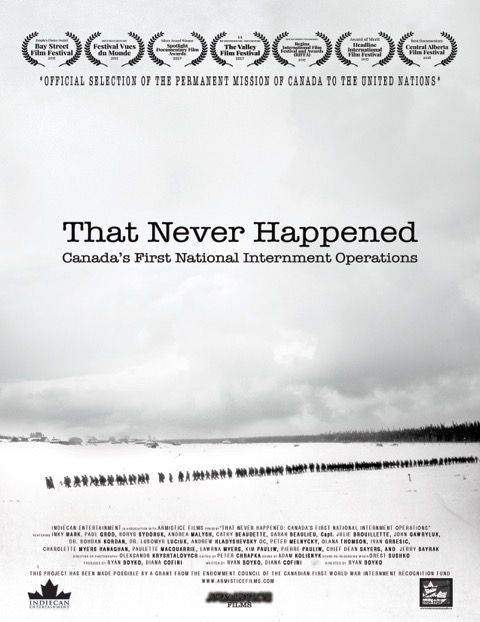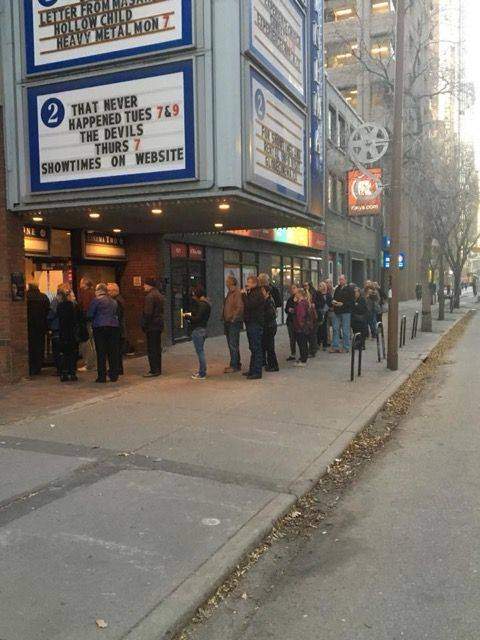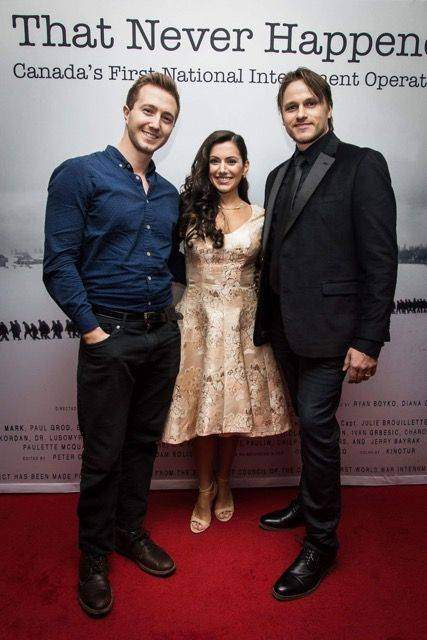Almost everyone has something shameful in their past. There are only two choices you have in such a situation; denial or full confession. When filmmakers Ryan Boyko and Diana Cofini wanted to unearth the story of Canada’s interment of Ukrainians in That Never Happened, they were adamant about that the tone in which it was to be delivered; necessitating the enlistment of editor Peter Chrapka. A film like this is most certainly about communication. As the director, Boyko needed an editor who understood his message but one who could also help him to see the potential for its delivery at maximum capacity.
Having worked with Chrapka previously on a multiple award-winning thirty-three-part web-series which was seen in one hundred seventy-four countries, Ryan was confident that their open minded collaboration would yield great benefits. This was certainly proven correct as That Never Happened garnered a host of awards including: People’s Choice Award at the Bay street film festival, Best Investigative Documentary at the Regina International Film Festival and Awards (RIFFA), Best Documentary at both the Festival Vues Du Monde and Central Alberta Film Festival, and numerous others.

Mission of Canada
It was also chosen as the official selection of the Mission of Canada to the United Nations as its September conference in Geneva for the 70th anniversary of the declaration of Human rights. The film has been picked up for distribution by IndieCan Entertainment and had a Canadian Theatrical Release Screenings and made its broadcast premiere on the CBC documentary Channel.
Its currently availability on iTunes, Google play, Amazon prime, Vudu, Comcast network and dish network, Shaw on Demand, Bell on Demand, and DVD clearly states that the interest in this story is massive and international. The dedicated team who crafted this important reveal of history is a strong testament to the importance of the independent and responsible investigation of history.
The editing of a documentary is vastly different for an editor than that of a scripted production. In contrast to being supplied with footage aimed at achieving the emotion, copious film is viewed in order to match the intended tone. Of course, perhaps the most notable facet is that the subjects are real people who actually experienced the hardships which the story relates. Chrapka admits to fighting back tears as he sifted through footage of the internment camps and the stories of many tragedies which followed the events. The emotion he felt is palpable in That Never Happened with amazing clarity. The film documents Canada’s interment operations between 1914 to 1920.

Register of people
A register of over 88,000 people was created and nearly 8,500 were wrongly imprisoned not on the basis of crimes committed but rather on their country of origin. Covered up in the 1950s with the destruction of public records, the details were resurrected in the 80s. Chrapka’s cut of the documentary’s opening scene presents this dichotomy with a beginning that introduces the location where this historical moment happened, showing beautiful shots of Canada intercut with the remnants of what once were internment camps, in locations where evidence of the camps is slowly being overgrown by wildlife.
Voice overs from interviewees are heard over these visuals, deepening the viewer’s confusion. In this initial moment of the documentary, Peter has translated some sense of “What is happening?” which struck those wrongly sent to these camps. The coldness of video of this bill being passed in the House of Commons is in direct contrast to the camcorder footage of Ryan Boyko’s family members during the holidays as a voice over from an interviewee discusses his compulsion to let go of his historical culture based on the fear of the internment camps.

That Never Happened
This occurrence in the country’s history was never taught in the Canadian school system. Citizens of the country were overwhelmingly shocked upon viewing That Never Happened. The response to this documentary displays Canada’s willingness to reclaim this part of their past. While the events never went away, there’s no denying that the filmmakers who created That Never Happened made great advances in exposing it to a new generation with profound results.
The reinforce the idea that we can never avoid repeating past mistakes if we don’t first admit to them. Peter Chrapka seems justifiably pleased with the idea that his work alongside others has led to real change. He declares, “I think what drew people to the documentary is that it exposed a truth that was otherwise unknown or hidden from the general public.
I think there are a lot of people out there who want to know the truth about what really happened. We were able to bring that to the forefront, to educate everyone on this historical event, and then take a moment to shed light on a few brave men and women who worked to have this part in our history acknowledged by the government with Bill C-331. It was nice for audiences to see in the documentary that the Canadian government established a ten-million-dollar fund to remember those who suffered and lost their lives in the internment camps. It was equally rewarding to spotlight the people who worked to get the government to acknowledge this injustice.”